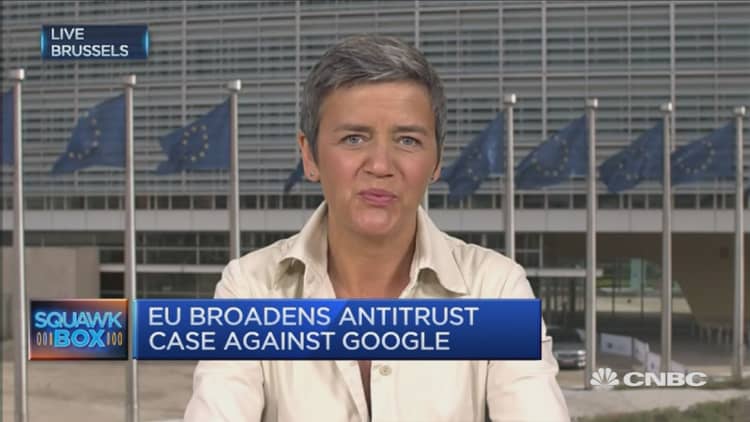European news publishers will be given the right to levy fees on internet platforms such as Google if search engines show snippets of their stories, under radical copyright reforms being finalized by the European Commission.
The proposals, to be published in September, are aimed at diluting the power of big online operators, whose market share in areas such as search leads to unbalanced commercial negotiations between the search engine and content creators, according to officials.
The move will heap further pressure on the already strained relationship between Silicon Valley and Brussels, which are embroiled in increasingly fractious arguments over issues covering competition, tax and privacy. On Wednesday, the US Treasury department attacked commission moves to levy billions of euros from Apple for alleged underpayment of taxes in Europe.
More from the Financial Times:
Livestream video little more than gimmick
Advertising – Facebook and Google's duopoly
Food becomes key digital media ingredient
At the heart of the draft copyright plan, news publishers would receive "exclusive rights" to make their content available online to the public in a move that would force services such as Google News to agree terms with news organisations for showing extracts of articles.
Citing dwindling revenues at news organisations, the commission warns that failure to push on with such a policy would be "prejudicial for . . . media pluralism", according to one internal document.
Critics of the idea argue that similar efforts to charge Google for aggregating news stories have failed in both Germany and Spain. Google responded to a mandatory levy in Spain by shutting down Google News in the country. In Germany, many publishers opted to waive the charge in order to still appear on the search engine's news results after suffering big drops in traffic.

Julia Reda, a German MEP and copyright reform activist, said: "They recognize that German and Spanish rights did not work well, but structurally they are trying to do the same thing."
But she said the size of Google would make it difficult for publishers to reach a deal even with the exclusive right. "It is insane to believe that companies would win this battle," she said. Google declined to comment.
Under the proposals, news publishers would not be obliged to levy a fee for an aggregator to show a segment of content, and could offer it for free. Officials have made clear that simply linking to publicly available content is not covered by the EU's copyright rules, a fact that will not change under the proposals.
Christian Wigand, a spokesperson for the European Commission, said: "Let's be clear: granting such rights to news publishers would not affect the way users share hyperlinks on the internet. It would recognize their role as investors in content."
Elsewhere, in an impact assessment of the proposed reforms, Google was held up as an example to be followed. Under the new rules, user-generated video sites would be required to introduce technology to identify copyright protected work, similar to that which Google-owned YouTube already employs.
Academics would also be able to carry out so-called "text-mining" of already licensed content under the reforms. This would allow researchers to automatically search academic journals, a right that had been challenged by publishers in recent years.
Brussels has often ignored calls for copyright reform, with officials reluctant to pick a multi-sided fight involving everyone from massive internet companies to individual performers, along with publishers, news outlets and record labels.

